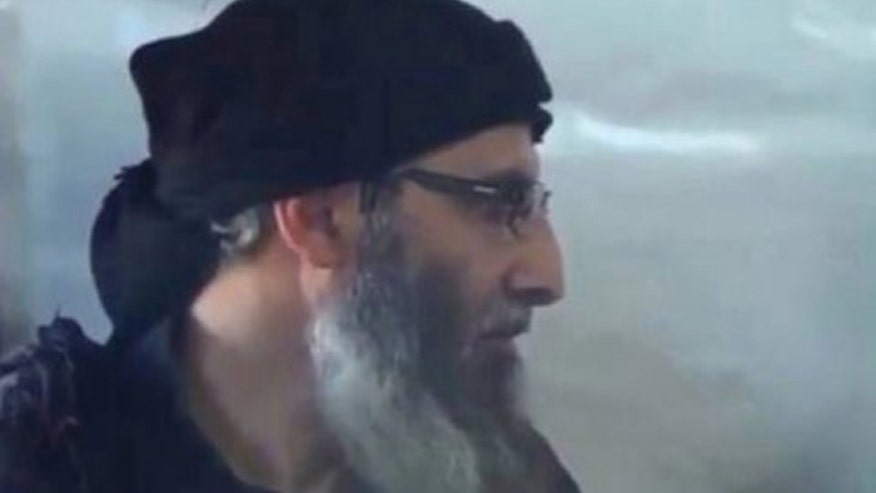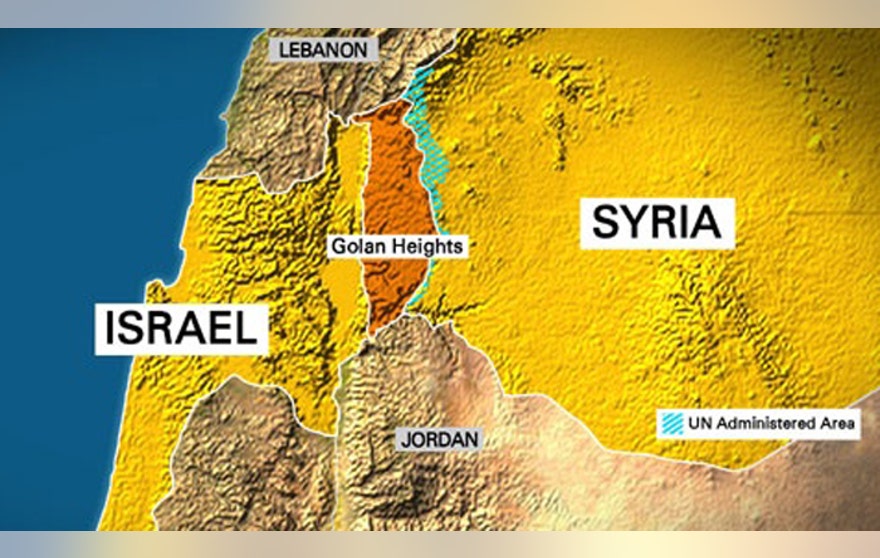'Severe blow': Al Qaeda suicide bomber takes out leadership of key ISIS brigade

Yarmouk Martyrs Brigade chief Abu Ali al-Baridi was one of the ISIS-linked fighters killed in the Nov. 15 attack. (Lebanon Now)
HAIFA, Israel – A recent suicide bombing in southern Syria shows the rivalry between Al Qaeda and ISIS is more than just a contest to see who can kill the most infidels -- the groups are using classic terror techniques on each other.
The Nov. 15 bombing came at a top-level meeting of the Yarmouk Martyrs Brigade, a key ISIS militia known for its bloody and vicious hold over parts of the Golan Heights. Six of the group’s top men were killed, including Muhammad "Abu Ali" al-Baridi, the shadowy head of the group who went by the nickname “The Uncle.”
ADVERTISEMENT
Al Nusra Front, Al Qaeda’s Syrian affiliate, quickly took credit, gloating on Twitter about the “heroic” attack.
“The Islamic State [ISIS], that controls the closest area to the Israel border in the Syrian Golan Heights, suffered a severe blow and lost its entire top command in the area in one fell swoop,” noted Alex Fishman, a veteran military correspondent for Israeli daily Yediot Aharonot.
"ISIS ... suffered a severe blow and lost its entire top command in the area in one fell swoop.”- Alex Fishman, Yediot Aharonot
While ISIS and Al Nusra fight common enemies as well as each other north of Damascus, the two terror groups are in an all-out war south of the capital, along the Israeli border. It is in that part of the hugely complex Syrian conflict where the bitter infighting between the Sunni Muslim terrorist groups is most deadly and direct.
ISIS has largely captured the international spotlight from Al Qaeda, the group from which it sprang, with mass executions, gruesome beheadings and even the apparent use of chemical weapons. But while the black-clad killers have sown fear across the globe, the organization behind the infamous 9/11, 7/7, and countless other major atrocities, is not surrendering its longtime perch atop the terror heap.
Word of the suicide bombing trickled out slowly, in part because the world’s eyes were on Paris, where an ISIS attack left 130 dead on Nov. 13. Regional Arab media first indicated that ISIS in Syria received the stunning blow in the Golan Heights village of Jamleh. When news got out about the death of the terrorist known as “The Uncle,” who earlier this year posted a video on social media pledging his allegiance to ISIS, the devastating blow to ISIS was revealed.
“We heard the sound of a strong explosion coming from the former Baath Party headquarters in the village,” Abu al-Ezzam, a Jamleh resident, told Syria Direct. “We ran to the place, and there were body parts scattered everywhere.” Al-Ezzam added that the village was “known as a meeting place for [the Yarmouk Martyrs Brigade] leadership.”
“Nusra Front also called on ISIS fighters, who number about 2,000 and who have acquired a large arsenal of weapons including tanks seized from Syrian army garrisons in the border area, to surrender themselves,” reported Lebanon’s Daily Star.
In a defiant statement released on social media, the Yarmouk Martyrs Brigade responded, “The martyrdom of the leaders will only make us more determined. Blood and sacrifice is welcome for God’s sake.”
Regional experts suggest the successful suicide mission against such a significant affiliate shows a degree of on-the-ground vulnerability on the part of ISIS. They say it could be interpreted as justification for those who argue that only ‘boots on the ground’ can truly deal a crushing blow to ISIS, whose reported underground hiding places ensure that while they will suffer casualties from airstrikes carried out by the U.S., France and others, such tactics are unlikely to deal them a mortal blow.
Israel has so far observed as the Islamists and supporters of the rival Syrian regime slug it across the border. But sources told FoxNews.com Israeli officials know there is always the potential that ISIS, Al Nusra, or, most likely Lebanon-based Iranian proxy Hezbollah, could turn their attention to engineering a conflict with the Jewish state.
“ISIS' recent failures equal its successes,” said Fishman. “On one hand -- the terror attacks in Paris, the bombing of the Russian plane in the Sinai, the bombing in the heart of Beirut and several achievements on the Aleppo-Damascus route. On the other hand, a retreat in Iraq under pressure [from] the Iraqi military, the Kurds, and the Shiite militia.
“It is not unlikely that the deadly attack that took out the Yarmouk Martyrs Brigade's leadership in the area was actually a sign marking the end of ISIS control of the Golan,” he said.
Paul Alster is an Israel-based journalist. Follow him on Twitter @paul_alster and visit his website:www.paulalster.com.

No comments:
Post a Comment
Thanks for commenting. Your comments are needed for helping to improve the discussion.